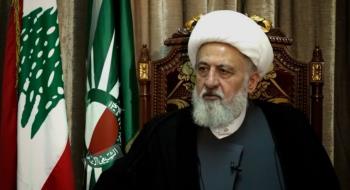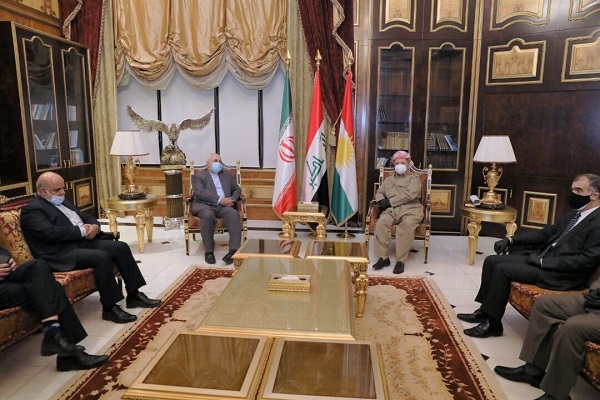Alwaght- Iran’s Foreign Minister Mohammad Javad Zarif visited Baghdad on Sunday for an official trip to neighboring Iraq. During his stay in Baghdad, he met with top Iraqi officials.
He then visited Erbil, the capital of the Iraqi Kurdistan autonomous region for talks with the Kurdish leaders. He met with Nechirvan Barzani, the president of the Kurdistan Regional Government (KRG), Masrour Barzani, the prime minister, and Masoud Barzani, the head of the Kurdistan Democratic Party and former president of the KRG.
Following the meetings, the two sides emphasized the tendency to strengthen bilateral ties in an array of areas.
The visit to Erbil promotes a question: What are the benefits of Zarif’s visit to the Kurdish region for both Iran and Iraq in the present conditions? Three benefits of the visit are here:
Iran plays positively in pushing Baghdad-Erbil dialogue
Since the moment the Baathist party rule ended in Iraq by the US toppling of the dictator Saddam Hussein in 2003, the Kurds have had disputes with the officials in the central government in Baghdad. For nearly two decades, the two sides went through a string of disputes. The initial differences appeared as post-Saddam Iraq negotiated a new constitution between 2003 and 2005, which were under the supervision of the US which had its own ruler, Paul Bremer, for the administration of the post-war period. There was a belief that once a new constitution is passed in the country, the tensions will end for good between Erbil and Baghdad.
But the belief proved wrong. The tensions with the central government moved beyond the new constitution and even the new government. Actually, not only they did not disappear but also took new aspects. The key sticking points between them were Article 140 of constriction which is informally known as disputed regions article, Kurdistan region’s oil production and sales, the KRG share from the federal Iraqi budget, and the Kurdish Peshmerga forces deployment and their operation mechanism in new Iraq. They continue at a high level to date.
Both Baghdad and Erbil leaders over the past few years made big efforts to solve the pending problems between them. Delegations from both sides exchanged visits to each other’s capitals serval times as part of the efforts to negotiate solutions. Even agreements were reached but did not materialize on the ground.
Throughout the meetings and negotiations process, Iran has been a key actor seeking to remove the tensions. The fact is that the Islamic Republic, as an actor largely trusted by Baghdad and Erbil, has always played a positive role to broker peace.
In the current conditions, the Baghdad-Erbil have run into a degree of standoff that the Kurds have asked a UN intervention in the process of bilateral talks. Zarif’s visit to Baghdad and then Erbil is largely welcomed by the both sides and Erbil, as the party with smaller power of maneuvering in the talks with Baghdad, sounds upbeat about the trip being a launching pad for a new agreement.
Security cooperation and anti-terror fight
Yet another important case for Zarif’s discussion with the Erbil leaders was the bilateral security cooperation and the fight against terrorism as both want them to reach new levels.
In the past few months, the anti-Iranian groups, who are hiding in the Iraqi Kurdish region, renewed their harassment operations along the Iranian borders. Very likely, Zarif raised these hostilities with Erbil officials and highlighted the need for the Kurdish government to secure the shared borders and hold in check the terrorists. The Kurdish officials agree that the region’s territories and borders should not be used as platform to destabilize border regions of neighboring countries.
Boosting trade and shoring up activity of border crossings
Iraq and especially the Kurdistan region over the recent years have been the destinations of Iranian exports. But since December last year and with the outbreak of coronavirus pandemic, bilateral trade slowed down substantially. Some border gates suspended operations as the disease became more serious.
Kurdistan region has four official border crossings with Iran and one with Turkey— Haj Imran, Bashmakh, Garmyan, Parviz Khan, and Ibrahim Khalil,
On July 15, the head of Iran-Iraq’s Chamber of Commerce Yahya Al Eshaqh commented on reopening the borders with the Kurdistan region and movement of trucks to and from the region, saying that the borders with Kurdistan are “open and active” and daily 2,000 trucks cross them. There are yet some limitations on the movement of people, he said.
So, Zarif had on his agenda talks with the Kurdish side on bilateral trade expansion amid coronavirus crisis. They seem to be resolved to promote the activity of the border crossings.



























